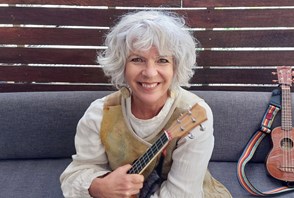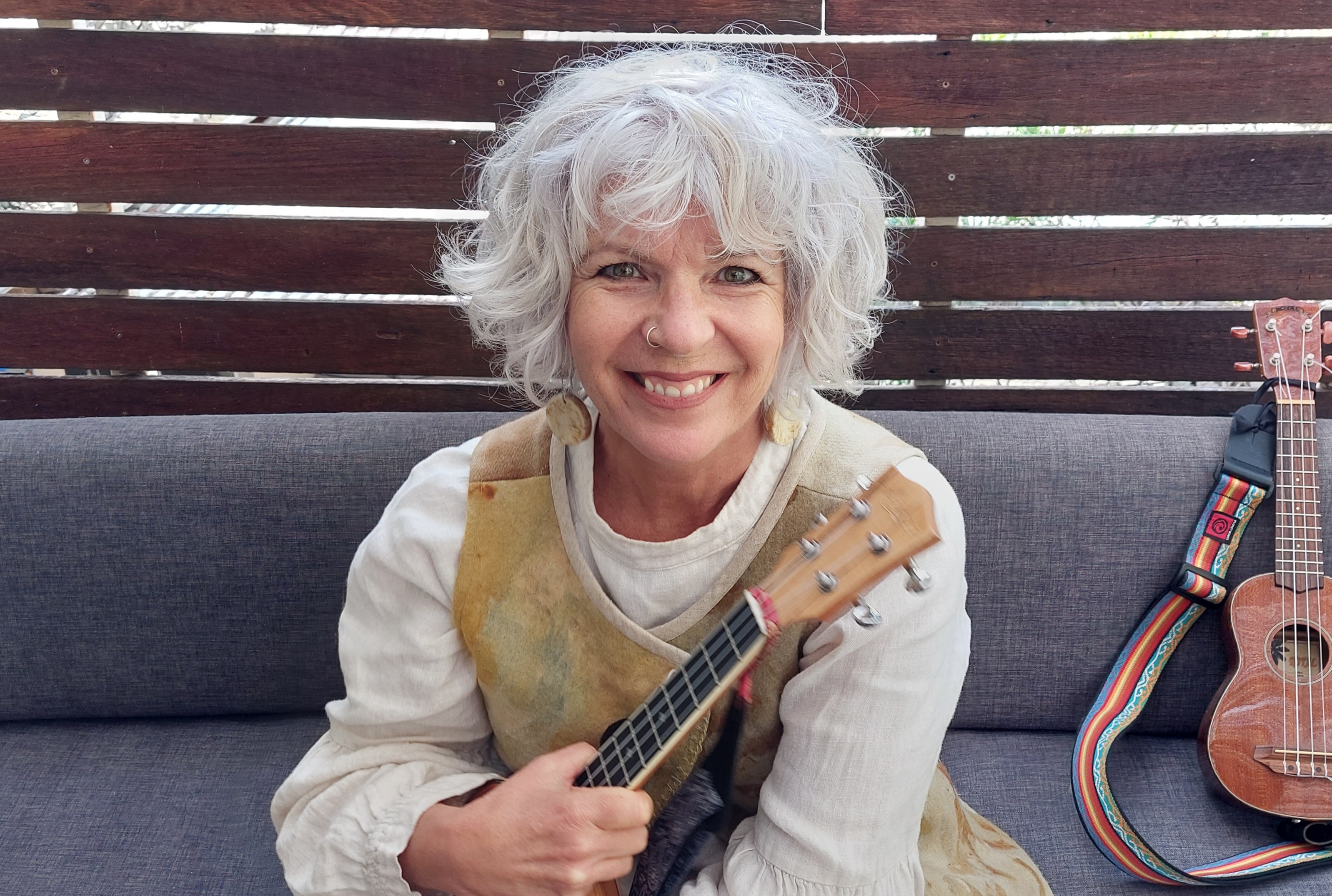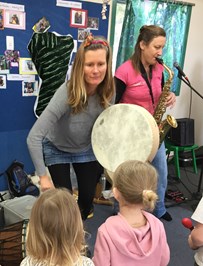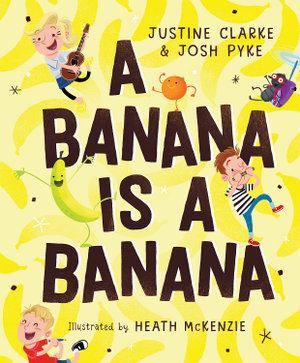The importance of music in early childhood development
Engaging with music fires both hemispheres of a young child’s developing brain - insights by an early childhood education expert into why that happens. A OneMusic Australia Child Care Services licence helps keep arts and culture coming for those little brains, now and into the future.
B Minor Music pictured above
A new campaign asks early childhood services to get behind the nation’s artists with one simple action, writes music education advocate, Tina Broad.

 Tina Broad. Photo Hamish Richardson
Tina Broad. Photo Hamish Richardson
All good early childhood educators know that music is a superpower, right?
Neuroscientific advances including brain imaging have shown amazing effects listening to - and making - music has on a child’s development.
Moving to music, clapping in time to a beat, shaking a home-made rice shaker, singing along and doing the actions with ‘hot potato, hot potato’… engaging with music fires both hemispheres of a child’s developing brain.
- Playing soothing instrumental music (as most services do at nap-time) is associated with lowering the stress hormone cortisol.
- Simple songwriting activities that address topics of social inclusion can help build children’s empathy.
- Rhythm and movement activities like marching in time or clapping a friend’s hand encourage beat synchronisation, help build motor skills and self-regulation.
Music superheroes
What you might not have realised is that you may also be part of a crucial lifeline that’s helping Australia’s music creators - the superheroes behind much of the music you use – earn a living. How so?
A campaign fronted by songwriter, actor and ‘Play Schooler’, Justine Clarke, is encouraging early childhood services to take out a OneMusic Australia/Copyright Agency licence, spotlighting the link between our current creators and the places that educate and care for our young creators of tomorrow.
This licence has been specifically designed for early childhood settings and gives permission for a range of different uses of music, as well as books and visual art. Per-centre licence fees are modest, around $3 per child, and contribute to a larger pool that then gets distributed to songwriters, authors and visual artists as royalties.
When you take out a licence for your centre, you’re not just showing respect to the people who create Australian culture, you’re providing tangible and much-needed support to them.
Ngaire McLean, Director of Stradbroke Early Learning Centre has just signed up for her Centre’s licence “A musically-rich early childhood program draws on the work of brilliant songwriters and musicians. I respect that link now more than I ever, I think”.
A OneMusic Australia Child Care Services licence helps keep arts and culture alive, for now and into the future.
Pictured: Stradbroke Early Learning Centre Music in Residence Program
Tina Broad created Australia’s biggest school/community music initiative, Music Count Us In for which she was recognised with an International Music Council (UNESCO) Award. She runs harmony singing workshops around the world and is an education advisor to Australia’s music rights organisation, APRA AMCOS, leading its flagship school songwriting program, SongMakers. As a policy communications professional in an earlier life, she worked on the introduction of the national quality accreditation scheme and was a consultant to KU.
